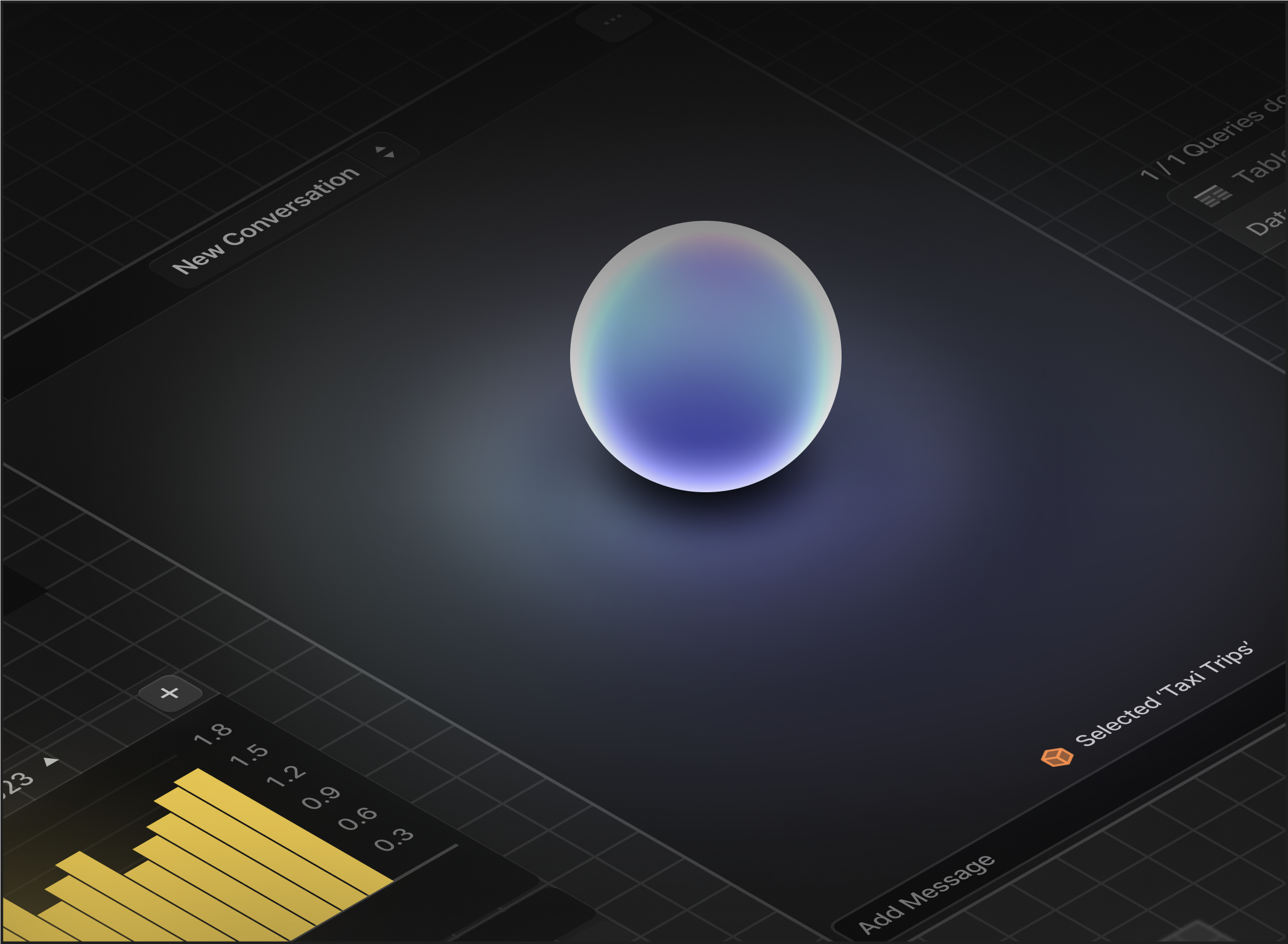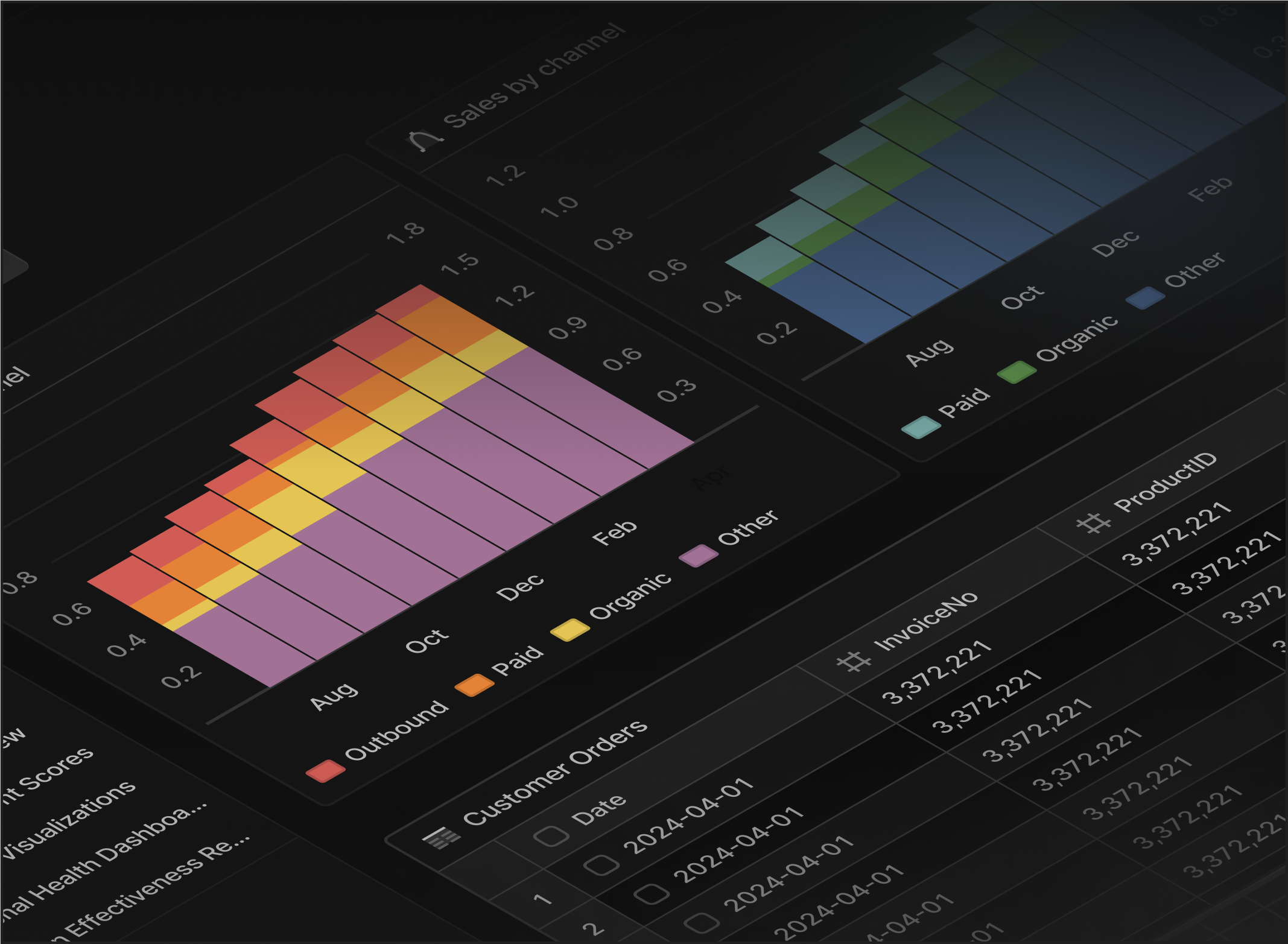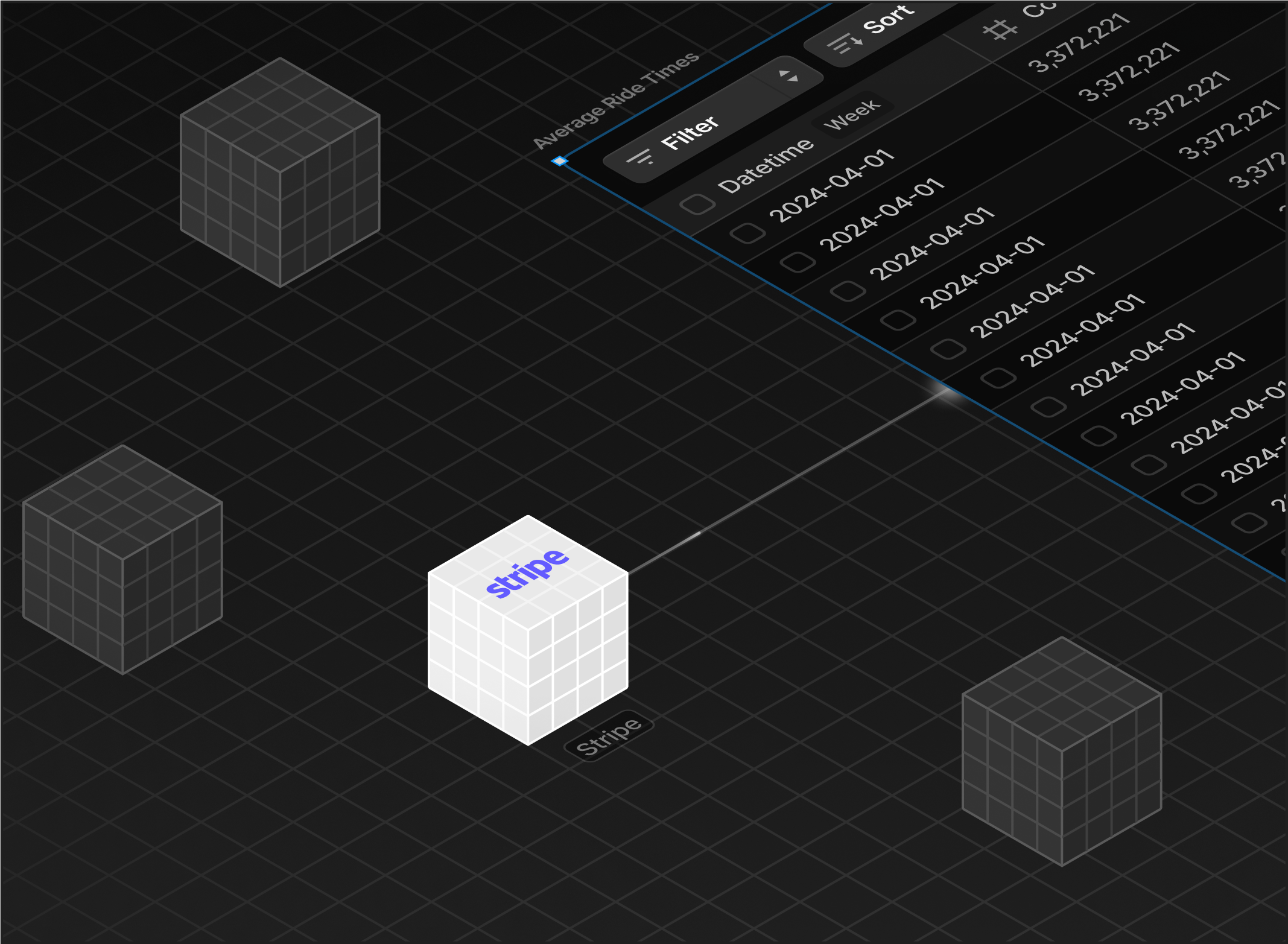Connector Database / Hubspot
Analyze your Hubspot data with AI
Build interactive dashboards, generate automated reports, and unlock business intelligence insights from your Hubspot data with AI-powered assistant.
_

Start with a question
Generate automated reports and business intelligence insights from your Hubspot data—as fast as you can ask them.


Build dashboards and data visualizations
Transform your conversation into dynamic data visualizations on an intuitive data canvas.
Integrate all your data
Unify your Hubspot data with DuckDB-powered data warehouse including MySQL, Quickbooks and Stripe.

Available Hubspot Data
Extracts HubSpot CRM and marketing data including contacts, companies, deals, tickets, owners, contact lists, campaigns, email events, subscription changes, forms, workflows, deal pipelines, and custom objects. Enables analysis of sales pipeline performance, customer lifecycle and relationships, support ticket activity, marketing email engagement, subscription preferences, and automation workflows.
Contact
Represents individual people in the CRM; supports segmentation, lifecycle tracking, attribution, and engagement analysis across marketing and sales touchpoints.
Company
Represents accounts/organizations linked to contacts and deals; enables account-based reporting, coverage, revenue by account, and hierarchy analyses.
Deal
Represents sales opportunities in the pipeline; supports analysis of pipeline coverage, win rates, stage conversion, velocity, and revenue forecasting.
Ticket
Represents customer support cases; enables reporting on volume, SLA adherence, response and resolution times, and backlog trends.
Owner
Represents CRM users/assignees for records; supports performance attribution, workload distribution, and territory/team reporting.
Engagement
Captures logged activities like calls, emails, meetings, and tasks; used to measure sales activity levels, cadences, and follow-up effectiveness.
Marketing Email Campaign
Represents marketing email sends and campaign configurations; supports campaign performance analysis including sends, deliverability, and audience targeting.
Email Engagement Event
Event-level interactions with marketing emails (sends, opens, clicks, bounces); enables cohort analysis, funneling, attribution, and engagement rate metrics.
Email Subscription
Represents contact subscription preferences and timeline changes; used for compliance reporting and opt-in/out trend analysis by audience and channel.
Contact List
Represents dynamic or static segments of contacts; supports audience management, cohorting, and campaign targeting and performance by segment.
Form
Represents lead capture forms and fields; enables analysis of form views, submissions, and conversion performance across sources and pages.
Workflow
Represents automation sequences for marketing and sales; supports reporting on enrollments, progression, and outcomes driven by automation.
Custom Object
Represents domain-specific records defined in HubSpot; enables tailored reporting and modeling with custom schemas and associations.
Authentication Required
Connects securely to your HubSpot account using OAuth 2.0 (client ID/secret with refresh token); alternatively supports a HubSpot API key (hapikey) for low‑volume development.
Getting started with
Hubspot Analytics & Business Intelligence
Connect your Hubspot data
Connect to Hubspot once and automatically sync data to your centralized data warehouse for real-time reporting and analytics.
Build business intelligence models
Create automated reports, dashboards, and data visualizations with customizable business logic and AI-powered insights for consistent analytics across your organization.
Generate reports and insights
Create interactive dashboards, automated reports, and data visualizations with AI-powered business intelligence. Share live analytics and scheduled reporting with your team.
Want to see how easy it is to get started?
Hubspot usersDefinite
People love Definite because it lets you focus on what matters. Setting up your own data infrastructure doesn't make your beer taste better. Skip the tedium and start at analytics.
I was leading the efforts of setting up a business intelligence function. I was surprised how complex this all was to do even today. It's something that every tech company would need at some point but it hasn't been simplified. You need a whole team focused on building a data warehouse, setting up the right pipelines, and then integrating a BI tool on top.Definite wasn't only the answer to this problem, it tackled the next problem I knew I'd have as soon as the BI tool was ready — how do we get non-technical teams and people to learn and utilise such a tool.
Our analytics before Definite consisted of dozens of Excel sheets that took hours to update. Manual updates led to errors. Everyone questioned the accuracy of the numbers. Many people just stopped looking at the reports.After Definite, everything ran like clockwork.We immediately saved thousands of dollars per month in the time spent updating reports and have built strategies (e.g. improved ROI on ad spend, inventory management, etc.) on the data that will yield millions to our bottom line.
Have questions?
Find answers.
Definite has everything you need to deploy analytics within your company.
Data doesn't need to be so hard
Get the new standard in analytics. Sign up below or get in touch and we'll set you up in under 30 minutes.